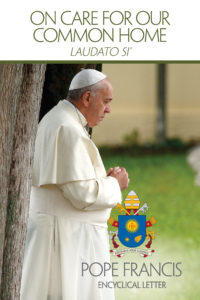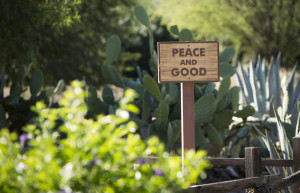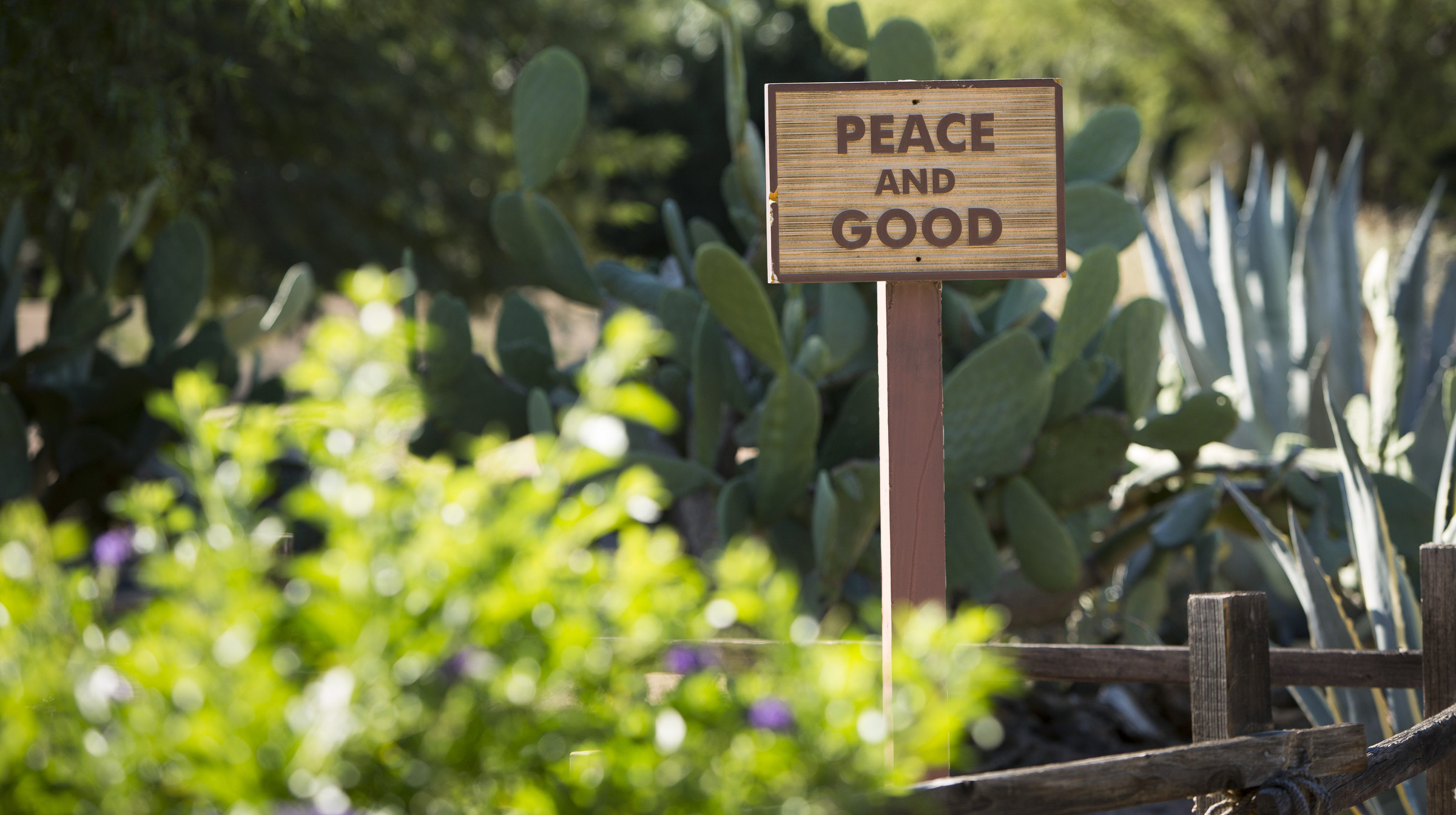
Pope Francis is calling on Catholics, as well as all people of good will, to look at humanity’s relationship with the earth and how that affects the most vulnerable among us, say local theologians.
“What he lays out is the threefold relationship with God that was put asunder by the fall, and that we’re called back to by Christ: a proper relationship with God, proper relationship with each other, and proper relationship with the earth,” said Ryan Hanning, a professor of theology at the University of Mary in Tempe. “It’s the Church’s appropriate role to respond to things that affect humans and the environment affects humans.”
Pope Francis’ encyclical, “Laudato Si,” was released by the Vatican June 18, and takes its name from St. Francis of Assisi’s “Canticle of the Creatures.”
“For us Franciscans, that’s language we understand,” says Franciscan Father Michael Weldon, pastor at St. Mary’s Basilica. “It says ‘Praise be you’ which I find is a beautiful way to start this encyclical.”
Fr. Weldon said that the encyclical is laced with Franciscan spirituality, and has a “Franciscan intuition.”
Join a study of the encyclical with the Franciscans
Franciscan Renewal Center
(480) 948-7460St. Mary’s Basilica
(602) 354-2100
“Paragraph 59 talks about the universal fraternity,” he said. “At the end of the day, everything is fraternal or sororal; at the end of the day, we’re all just brothers and sisters with creation. I find the entire document compassionate and filled with that Franciscan intuition.”
In the spirit of St. Francis, the pope is inviting us “not only to praise the Lord for the beauty of creation, but also to be good stewards of creation,” said Bishop Thomas J. Olmsted. “He warns that we face a crisis of climate change in which the whole world, ‘our common home’, is threatened by a throw-away society, by seeing ‘ourselves as [the world’s] lords and masters, entitled to plunder her at will’ rather than being stewards working in harmony with our Creator, our brothers and sisters, and our world.
“Pope Francis sees this crisis not only as ecological but also as spiritual and moral,” added the bishop, “requiring that we have “’a shared responsibility for others and for the world,’ i.e. a strong sense of connectedness and solidarity as we care for God’s creation and for the poor and vulnerable, who suffer the most from this crisis.”
Hanning notes that while the Holy Father addresses climate change, that’s not really the crux of his message.

“He cites all these different sources, and says, look, even if you don’t believe the sources, even if you doubt the science, you can look around and tell we have an unhealthy relationship with the land,” he said. “He talks about integral human ecology and he relates love for the land with love for each other and how these two are so united. From there he sets the stage for what he’s able to offer in terms of suggestions for public policy, [and] suggestions for how we teach what he calls a ‘catechesis of ecology.’”
This call to environmental stewardship and how it affects our relationship with each other and with God is an extension of what the Church has always taught, says Ramon Luzarraga, chair of the theology department at Benedictine University at Mesa.
“Pope Benedict said one of the most urgent needs that systematic theology needs is a ‘theology of creation,’” Luzarraga said. “Since Paul VI, the predecessors of Pope Francis have been speaking about ecology.”
In the same way that Leo XIII’s “Rerum Novarum” was able to bring Catholic Social Teaching together in one document, Luzarraga said, Pope Francis has brought together the Church’s teaching on the environment in “Laudato Si”.
Luzarraga said the encyclical challenges us to look at how our actions affect nature and to work with it.
“There’s a difference between dominion and domination — understanding nature, and our ability to work with nature so it doesn’t get despoiled versus dominion where it’s a tool and we forget that we’re not independent from nature,” he said. “There’s always been a desire to control the rough edges of nature. We have flood control, we control diseases. The hazard is to go in the other direction and think we can plunder at will.”
Hanning said that the Holy Father hopes to open a dialogue between science and faith, because without faith, science does not have an ethical compass and can fall into one of two extremes — that technology can fix all of the problems, or that humans are the problem.
“The Holy Father is making very clear this idea that stewardship for the environment means having an ethical conscience that comes from our Creator, and that the Catholic Church and the Christian faith have a very important role in contributing to how we fix this problem,” he said.
“I think that question the Holy Father asks every Christian, every person of good faith, and especially Catholics, [is] what world do we want to leave behind to our children. Not just the material world, but what ethos and values do we want to leave? Do we want to leave a world in which we have a throw-away culture and a world that we don’t value people and we don’t value family, or do we want to leave a world that’s healthy, that knows its direction, a world that knows and is cared for by humans who are created in God’s image and likeness to care for it?”







